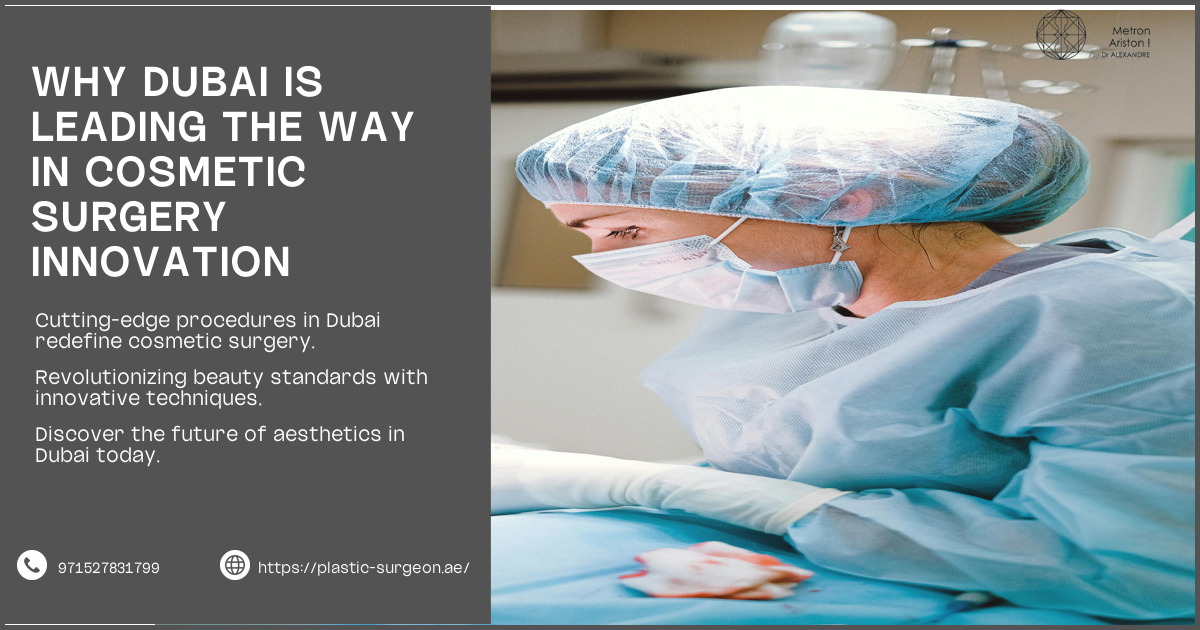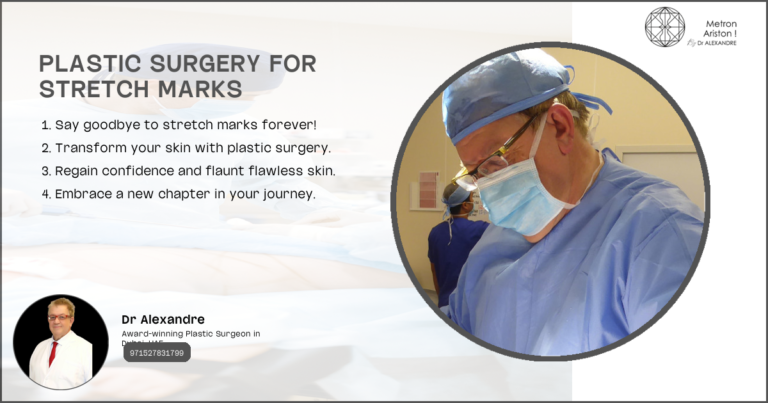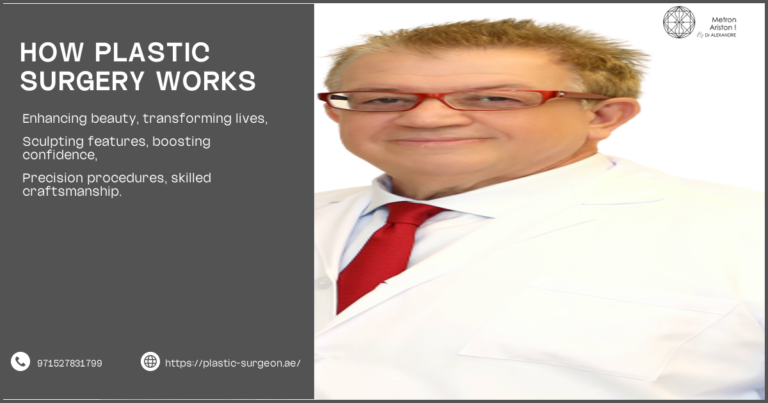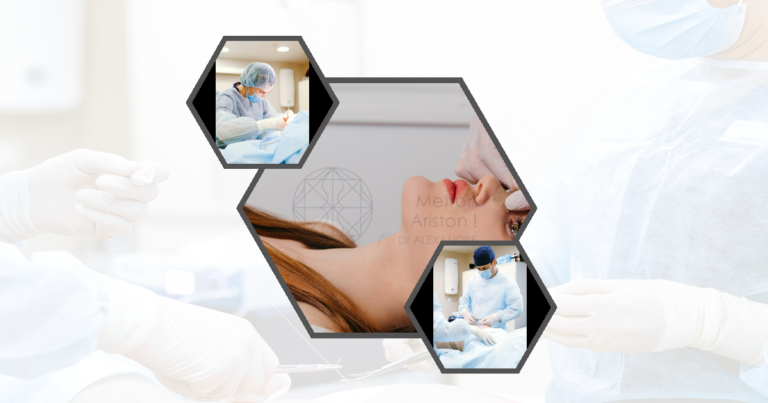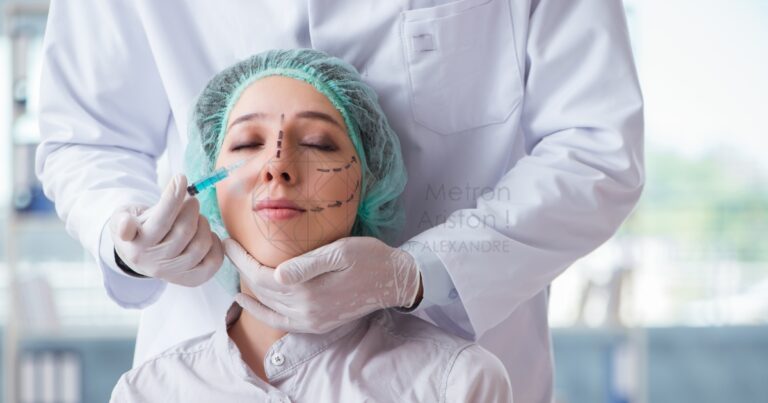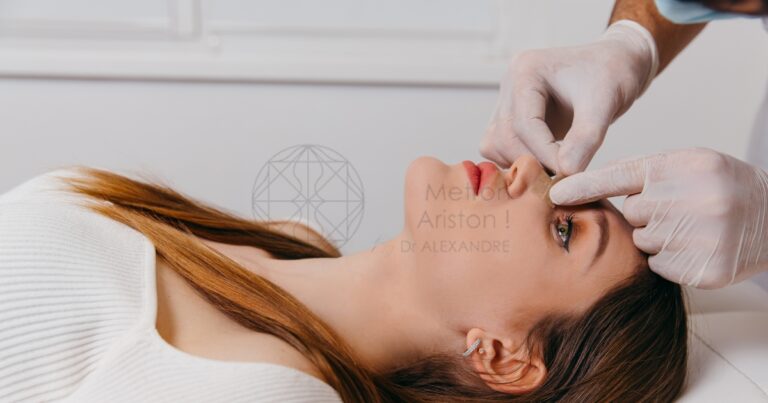Cosmetic Surgery Innovation: Transforming Beauty and Confidence
In recent years, cosmetic surgery has undergone a remarkable transformation, driven by groundbreaking innovations that are reshaping the industry. Dubai, a city known for its opulence and cutting-edge technology, is at the forefront of these advancements. This article delves into the various facets of cosmetic surgery innovation, exploring how Dubai is leading the way in transforming beauty and confidence.
What is Cosmetic Surgery Innovation?
Cosmetic surgery innovation encompasses the latest advancements and techniques that enhance the effectiveness, safety, and outcomes of cosmetic procedures. These innovations are not only redefining beauty standards but also boosting patient confidence by offering more personalized and less invasive options.
Cosmetic surgery innovation refers to the integration of new technologies and methodologies in surgical and non-surgical procedures aimed at improving aesthetic outcomes. This includes everything from advanced imaging techniques to regenerative medicine approaches.
Historical Evolution of Cosmetic Procedures
The journey of cosmetic surgery dates back centuries, with significant milestones marking its evolution. From rudimentary procedures in ancient times to the sophisticated techniques of today, the field has continuously evolved to meet the changing demands of society.
- Ancient practices laid the groundwork for modern techniques.
- The 20th century saw the rise of reconstructive surgery post-war.
- Recent decades have focused on minimally invasive and non-invasive procedures.
How are Technological Advancements Shaping Cosmetic Surgery?
Technological advancements are revolutionizing cosmetic surgery, making procedures safer, more precise, and tailored to individual needs. These innovations are setting new standards in the industry, particularly in Dubai, where cutting-edge technology is readily embraced.
3D Imaging and Virtual Reality in Pre-Surgical Planning
3D imaging and virtual reality (VR) are transforming pre-surgical planning by providing detailed visualizations of expected outcomes. These technologies allow surgeons and patients to explore potential results, enhancing decision-making and satisfaction.
- Enables precise mapping of surgical areas.
- Improves patient understanding and expectations.
- Reduces the likelihood of post-surgical surprises.
Robotics-Assisted Procedures
Robotics-assisted procedures are enhancing the precision and safety of cosmetic surgeries. These systems offer unparalleled accuracy, reducing human error and improving recovery times.
- Provides steady and precise movements.
- Minimizes tissue damage and scarring.
- Shortens recovery periods.
What are the Latest Trends in Non-Invasive Cosmetic Procedures?
Non-invasive cosmetic procedures are gaining popularity due to their minimal downtime and effective results. These procedures are continually evolving, offering new ways to enhance beauty without surgery.
Ultrasound and Radiofrequency Treatments
Ultrasound and radiofrequency treatments are non-invasive methods that tighten and rejuvenate the skin. These technologies stimulate collagen production, resulting in firmer and more youthful skin.
- Non-surgical skin tightening.
- Stimulates natural collagen production.
- Minimal discomfort and downtime.
Injectable Innovations
Injectables, such as dermal fillers and neuromodulators, are at the forefront of non-invasive cosmetic trends. These treatments offer quick and effective solutions for wrinkles, volume loss, and facial contouring.
- Quick procedures with immediate results.
- Customizable to individual facial structures.
- Temporary but effective enhancements.
Laser Technology Advancements
Laser technology continues to advance, offering solutions for skin resurfacing, hair removal, and pigmentation issues. These treatments are precise and effective, with minimal recovery time.
- Targets specific skin concerns.
- Promotes even skin tone and texture.
- Safe for various skin types.
How is Regenerative Medicine Revolutionizing Cosmetic Surgery?
Regenerative medicine is a game-changer in cosmetic surgery, focusing on repairing and rejuvenating tissues using the body’s natural healing processes. This approach is gaining traction in Dubai, where innovation is highly valued.
Stem Cell Therapies in Facial Rejuvenation
Stem cell therapies harness the body’s regenerative capabilities to rejuvenate the skin and tissues. These treatments offer natural and long-lasting results, making them a popular choice for facial rejuvenation.
- Promotes natural tissue regeneration.
- Long-lasting and natural-looking results.
- Reduces the need for synthetic materials.
Platelet-Rich Plasma (PRP) Treatments
PRP treatments use the patient’s own blood to stimulate healing and rejuvenation. This technique is effective for improving skin texture, reducing wrinkles, and promoting hair growth.
- Utilizes the body’s natural healing properties.
- Safe and biocompatible treatment.
- Versatile applications in skin and hair care.
Tissue Engineering for Reconstructive Procedures
Tissue engineering is paving the way for advanced reconstructive procedures. By creating bioengineered tissues, surgeons can offer more effective solutions for complex reconstructive needs.
- Customizable tissue solutions.
- Reduces the need for donor tissues.
- Enhances reconstructive outcomes.
What are the Benefits of Minimally Invasive Cosmetic Surgery Techniques?
Minimally invasive techniques are transforming cosmetic surgery by offering effective results with less trauma and downtime. These methods are particularly appealing in Dubai, where efficiency and innovation are highly valued.
Reduced Recovery Time and Scarring
Minimally invasive procedures result in less tissue damage, leading to quicker recovery times and minimal scarring. This is a significant advantage for patients seeking discreet and efficient solutions.
- Shorter recovery periods.
- Minimal visible scarring.
- Less post-operative discomfort.
Enhanced Precision and Results
These techniques allow for greater precision, resulting in more accurate and satisfying outcomes. Surgeons can achieve desired results with minimal disruption to surrounding tissues.
- Precise targeting of treatment areas.
- Consistent and predictable results.
- Improved patient satisfaction.
Expanded Patient Eligibility
Minimally invasive techniques expand the range of patients eligible for cosmetic procedures. Individuals who may not qualify for traditional surgery can benefit from these innovative approaches.
- Suitable for a wider range of patients.
- Lower risk of complications.
- Accessible to those with medical constraints.
How is Patient Safety Improved Through Cosmetic Surgery Innovation?
Patient safety is a top priority in cosmetic surgery, and innovations are continually enhancing safety protocols. Dubai’s commitment to excellence ensures that these advancements are readily adopted.
Advanced Anesthesia Techniques
Innovations in anesthesia are improving patient safety by reducing risks and enhancing comfort during procedures. These techniques are tailored to individual needs, ensuring a safer surgical experience.
- Customized anesthesia plans.
- Reduced risk of adverse reactions.
- Enhanced patient comfort and safety.
Real-Time Monitoring Systems
Real-time monitoring systems provide continuous oversight during procedures, allowing for immediate intervention if necessary. This technology enhances patient safety and outcomes.
- Continuous monitoring of vital signs.
- Immediate response to complications.
- Improved surgical precision and safety.
Infection Control Innovations
Infection control is critical in cosmetic surgery, and new innovations are reducing the risk of post-operative infections. These measures ensure a safer recovery process for patients.
- Advanced sterilization techniques.
- Antimicrobial materials and coatings.
- Reduced risk of surgical site infections.
What Role Does Nanotechnology Play in Cosmetic Surgery?
Nanotechnology is an emerging field with significant implications for cosmetic surgery. By manipulating materials at the nanoscale, researchers are developing innovative solutions for aesthetic enhancements.
Targeted Drug Delivery Systems
Nanotechnology enables targeted drug delivery, improving the efficacy and safety of treatments. This approach minimizes side effects and enhances therapeutic outcomes.
- Precise delivery of active ingredients.
- Reduced systemic exposure.
- Enhanced treatment effectiveness.
Nanoparticle-Enhanced Implants
Nanoparticle-enhanced implants offer improved biocompatibility and durability. These innovations are setting new standards for implantable materials in cosmetic surgery.
- Increased implant longevity.
- Reduced risk of rejection.
- Enhanced aesthetic outcomes.
Nano-Scale Tissue Engineering
Nano-scale tissue engineering is advancing the development of bioengineered tissues for reconstructive and cosmetic purposes. This technology offers new possibilities for personalized treatments.
- Customizable tissue solutions.
- Improved integration with natural tissues.
- Enhanced regenerative capabilities.
How are Customized Implants Changing the Face of Cosmetic Surgery?
Customized implants are revolutionizing cosmetic surgery by offering tailored solutions that meet individual patient needs. These innovations are particularly popular in Dubai, where personalization is key.
3D-Printed Implants
3D printing technology is enabling the creation of customized implants that perfectly match a patient’s anatomy. This approach enhances the precision and outcomes of cosmetic procedures.
- Tailored to individual anatomical structures.
- Improved fit and comfort.
- Enhanced aesthetic results.
Patient-Specific Prosthetics
Patient-specific prosthetics are designed to meet the unique needs of each individual, offering improved functionality and appearance. These innovations are transforming reconstructive and cosmetic surgery.
- Customized to patient requirements.
- Improved functional outcomes.
- Enhanced patient satisfaction.
Biocompatible Materials Advancements
Advancements in biocompatible materials are improving the safety and effectiveness of implants. These materials reduce the risk of complications and enhance the longevity of results.
- Reduced risk of adverse reactions.
- Improved integration with natural tissues.
- Long-lasting and durable solutions.
What are the Ethical Considerations in Cosmetic Surgery Innovation?
As cosmetic surgery continues to evolve, ethical considerations are becoming increasingly important. These issues must be addressed to ensure responsible and equitable access to innovative treatments.
Balancing Patient Desires with Medical Necessity
Surgeons must balance patient desires with medical necessity, ensuring that procedures are appropriate and beneficial. This requires careful assessment and ethical decision-making.
- Evaluating patient motivations and expectations.
- Ensuring procedures are medically justified.
- Promoting realistic outcomes and satisfaction.
Addressing Body Dysmorphia and Unrealistic Expectations
Body dysmorphia and unrealistic expectations can impact patient satisfaction and outcomes. Surgeons must address these issues through thorough consultations and psychological support.
- Identifying and addressing psychological concerns.
- Setting realistic expectations for outcomes.
- Providing comprehensive pre- and post-operative support.
Ensuring Equitable Access to Innovative Treatments
Equitable access to innovative treatments is essential to ensure that all patients can benefit from advancements in cosmetic surgery. This requires addressing barriers to access and affordability.
- Promoting accessibility for diverse populations.
- Addressing cost and insurance coverage issues.
- Ensuring fair distribution of resources and technologies.
How is Big Data Influencing Cosmetic Surgery Outcomes?
Big data is transforming cosmetic surgery by providing valuable insights into patient outcomes and treatment effectiveness. This data-driven approach is enhancing decision-making and patient care.
Predictive Analytics for Procedure Success
Predictive analytics use big data to forecast the success of cosmetic procedures, helping surgeons make informed decisions and improve patient outcomes.
- Analyzing historical data for outcome predictions.
- Identifying factors influencing success rates.
- Enhancing surgical planning and decision-making.
Personalized Post-Operative Care Plans
Big data enables the creation of personalized post-operative care plans, ensuring that patients receive tailored support and monitoring during recovery.
- Customizing care based on patient data.
- Monitoring recovery progress and outcomes.
- Improving patient satisfaction and recovery experiences.
Long-Term Outcome Tracking and Analysis
Long-term outcome tracking and analysis provide valuable insights into the effectiveness and longevity of cosmetic procedures. This data informs future innovations and improvements.
- Monitoring patient outcomes over time.
- Identifying trends and areas for improvement.
- Enhancing the quality and effectiveness of treatments.
What are the Future Prospects of Cosmetic Surgery Innovation?
The future of cosmetic surgery is bright, with numerous innovations on the horizon. These advancements promise to further enhance the safety, effectiveness, and accessibility of cosmetic procedures.
Gene Therapy for Aesthetic Enhancements
Gene therapy holds the potential to revolutionize cosmetic surgery by offering permanent solutions for aesthetic enhancements. This approach targets the genetic basis of aging and other cosmetic concerns.
- Targeting genetic factors influencing appearance.
- Offering long-lasting and natural results.
- Reducing the need for repeated procedures.
Bioprinting of Functional Tissues
Bioprinting technology is advancing the creation of functional tissues for reconstructive and cosmetic purposes. This innovation offers new possibilities for personalized treatments.
- Creating customized tissue solutions.
- Enhancing reconstructive and cosmetic outcomes.
- Reducing reliance on donor tissues.
Integration of Augmented Reality in Surgical Procedures
Augmented reality (AR) is set to transform surgical procedures by providing real-time visualizations and guidance. This technology enhances precision and outcomes in cosmetic surgery.
- Real-time visualization of surgical areas.
- Improved accuracy and precision.
- Enhanced surgical planning and execution.
How Does Cosmetic Surgery Innovation Impact Patient Satisfaction?
Cosmetic surgery innovation is significantly enhancing patient satisfaction by offering more effective, personalized, and natural-looking results. These advancements are boosting confidence and quality of life for patients.
Improved Natural-Looking Results
Innovations in cosmetic surgery are delivering more natural-looking results, enhancing patient satisfaction and confidence. These outcomes are achieved through advanced techniques and technologies.
- Achieving subtle and natural enhancements.
- Reducing the risk of artificial appearances.
- Enhancing patient confidence and self-esteem.
Enhanced Long-Term Outcomes
Long-term outcomes are improved through innovative techniques and materials, ensuring that patients enjoy lasting benefits from their procedures.
- Durable and long-lasting results.
- Reduced need for repeat procedures.
- Improved quality of life and satisfaction.
Increased Patient Confidence and Quality of Life
Cosmetic surgery innovations are boosting patient confidence and quality of life by addressing aesthetic concerns and enhancing self-esteem. Surgical body modifications are procedures where doctors change how a person’s body looks or works Some examples include getting breast implants or splitting the tongue to make it look forked Stretch mark treatments help reduce the appearance of skin lines
Cosmetic procedure fallacies are wrong ideas people have about beauty treatments Some think these procedures can fix all their problems or make them look perfect but that’s not always true Body image perceptions shape how we see and feel about our own bodies These views can be influenced by media friends family and personal experiences
Crooked nose correction helps fix noses that are not straight Doctors can make your nose look better with Cosmetic procedures durability varies depending on the type of treatment Some procedures last for months while others can last for years
Cosmetic eyelid enhancement is a way to make eyes look bigger and more open It can help people feel more confident about their appearance Isotretinoin surgical considerations Doctors need to wait at least 6 months after a patient stops taking Isotretinoin before doing any skin surgery because the medicine can slow down healing and increase the risk of scarring
Aesthetic surgeries demographics People of all ages and backgrounds get cosmetic procedures but most are women between 30 and 50 years old who want to look younger or improve their appearance Evaluate surgeon credentials by checking their education training and experience Make sure the doctor is qualified to perform your specific procedure before surgery
- Addressing individual aesthetic goals.
- Enhancing overall well-being and confidence.
- Improving social and professional interactions.
What are the Challenges in Adopting New Cosmetic Surgery Technologies?
While cosmetic surgery innovations offer numerous benefits, there are challenges in adopting new technologies. These include regulatory hurdles, training requirements, and cost considerations.
Regulatory Hurdles and Approval Processes
Regulatory hurdles can delay the adoption of new technologies, impacting patient access to innovative treatments. Navigating these processes is essential for advancing cosmetic surgery.
- Ensuring compliance with regulatory standards.
- Addressing safety and efficacy concerns.
- Facilitating timely approval and adoption.
Training and Education for Surgeons
Surgeons must receive adequate training and education to effectively utilize new technologies. This ensures that patients receive safe and effective care.
- Providing comprehensive training programs.
- Ensuring proficiency in new techniques.
- Promoting continuous professional development.
Cost Considerations and Insurance Coverage
Cost considerations and insurance coverage can impact patient access to innovative treatments. Addressing these issues is essential for ensuring equitable access to cosmetic surgery advancements.
- Evaluating the cost-effectiveness of new technologies.
- Addressing insurance coverage and reimbursement.
- Promoting affordability and accessibility.
FAQs
What is the most innovative cosmetic surgery procedure?
The most innovative cosmetic surgery procedures often involve cutting-edge techniques in facial rejuvenation and body contouring. These procedures utilize advanced technologies such as 3D imaging, robotics, and AI to enhance precision and outcomes. As a result, patients can achieve more natural-looking and satisfying results.
How safe are new cosmetic surgery innovations?
New cosmetic surgery innovations are generally safe, thanks to rigorous safety protocols and clinical trials. These advancements undergo extensive testing to ensure their efficacy and safety for patients. However, it is essential for patients to consult with qualified surgeons to understand the risks and benefits of specific procedures.
Can cosmetic surgery innovations reverse aging?
Cosmetic surgery innovations, particularly those involving regenerative medicine, have the potential to reverse some signs of aging. Techniques such as stem cell therapies and PRP treatments promote natural rejuvenation and can significantly improve skin texture and appearance. While these treatments can reduce the visible effects of aging, they cannot stop the aging process entirely.
What is the recovery time for innovative cosmetic procedures?
The recovery time for innovative cosmetic procedures varies depending on the technique and individual patient factors. Generally, minimally invasive and non-invasive procedures offer shorter recovery periods compared to traditional surgery. Patients can often resume normal activities within a few days to weeks, depending on the specific procedure.
How much do innovative cosmetic surgeries cost?
The cost of innovative cosmetic surgeries can vary widely based on the procedure, location, and surgeon expertise. While these procedures may require a higher initial investment, they often offer long-term benefits and improved outcomes. Patients should consider the potential advantages and consult with their surgeon to understand the costs involved.7/)


